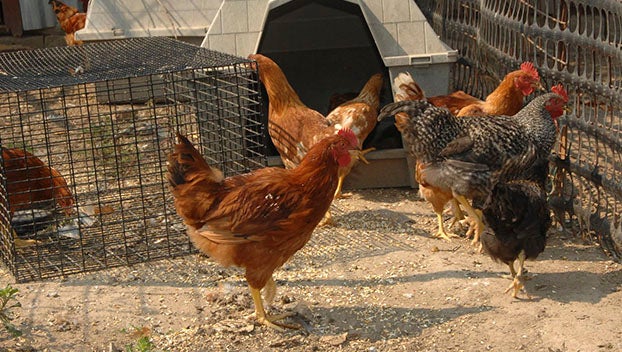Avian flu drives local egg price hike
Published 8:00 am Friday, February 3, 2023
|
Getting your Trinity Audio player ready...
|
At the beginning of January, the cost of a dozen large Grade A eggs was $3.59. Just two months earlier, you could buy the same thing in Victoria for $1.72. In fact, egg prices are up 49.1% compared to last year, except this part can’t be blamed on inflation. Instead, we’re just now starting to see the effects of an outbreak that started months ago, cases of avian flu. But now that it’s here, with at least one confirmed case this month in Central Virginia, what does that mean and how can farmers protect their flocks?
The avian flu, just as it sounds, is an influenza strain that affects birds. This particular strain is believed to be carried and transmitted by waterfowl. These birds can be carriers and even though they can be unaffected by it, spread the sickness through their droppings. State officials say they’re not sure what started this outbreak, but it’s now moving from wild birds to local flocks. And in the middle of migration season, that’s only expected to keep growing.
“We are not sure where or how, but it is spreading from wild birds to the flocks,” said state veterinarian Dr. Charles Broaddus with the Virginia Department of Agriculture. “With birds migrating during this season through the spring we are going to see the amount of cases increase during this time.”
THE LOCAL IMPACT
According to the The Virginia Department of Agriculture and Consumer Services (VDACS), the first and only commercial case of the avian flu in Virginia was found on Wednesday, Jan. 18. That happened in Rockingham County in a commercial turkey flock.
Around 25,000 turkeys were confirmed to be infected and were depopulated humanely to stop both the spread of the virus and the suffering of the sick birds. The surrounding flocks in a 10-kilometer radius have been tested and no other positive results have turned up as of yet. Officials say the testing is still ongoing to make sure that the flu is not spreading or to stop it if it is.
“Last year we had six cases in backyard flocks in the eastern part of the state,” said Hobey Bauhan, president of the Virginia Poultry Federation. “This is the first commercial flock so far in Virginia.”
Virginia has not had a major avian flu outbreak since 2002 and the Virginia Poultry Federation is taking measures to make sure it does not happen again.
According to Bauhan, even though it is not locally rampant, the avian flu has killed over 40 million egg laying hens across the country. That’s out of 375 million total egg laying hens in the U.S. As a result of the deaths, the number of eggs has dropped. An estimated 8.9 billion eggs were produced in the U.S. during December, according to the USDA. That’s down from 9.7 billion in December 2021.
The problem is there’s no cure. Once the flock is infected, the plagued birds have to be depopulated to stop the spread.
Even though Virginia has only had the one commercial outbreak, most of the eggs in Virginia are sourced from out of state, where the number of egg laying hens are dropping. According to the USDA, decreased egg production and soft misshapen eggs are also signs that the hen has the flu.
STOPPING THE SPREAD
Avian flu is rare, to the point the last major outbreak happened in 2015. An estimated 50.5 million birds died during that situation, according to the Centers for Disease Control and Prevention.
According to Bauhan, biosecurity is the most important way to stop this spread. Biosecurity is the process of taking measures to prevent introducing or spreading harmful organisms to plants and animals. The USDA has a standard protocol for those who work with poultry to use, whether it’s for backyard flocks, commercial flocks and even hunters when hunting game birds.
Biosecurity is made up of simple tasks to make sure that birds are not introduced to any potentially harmful viruses. These simple tasks include washing hands, changing clothes, changing and/or cleaning boots, cleaning vehicle tires and looking for signs of illness.
“We are taking this very seriously to minimize the suffering of these flocks but the strand has the potential to shift where it could affect other species,” said Broaddus. “This is another reason to take a rapid response to stop this.”




